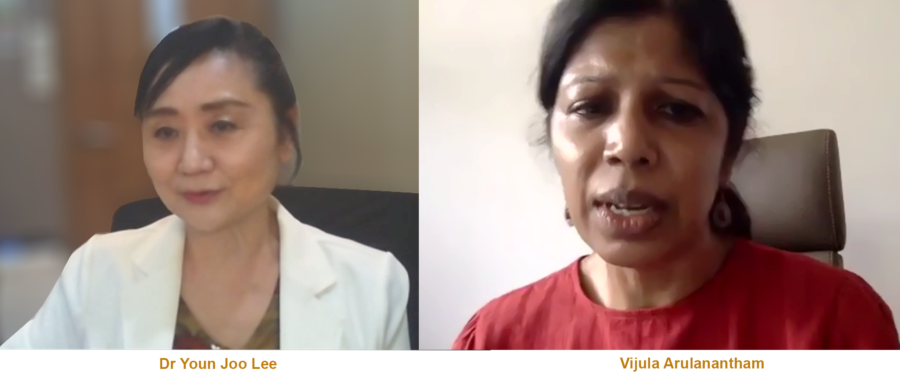Symposium on ‘Family Life and Family Values: Transition from Tradition to Modernity’ commences
 The Christian Conference of Asia’s (CCA) online Symposium on ‘Family Life and Family Values: Transition from Tradition to Modernity’ commenced on Tuesday, 3 August 2021.
The Christian Conference of Asia’s (CCA) online Symposium on ‘Family Life and Family Values: Transition from Tradition to Modernity’ commenced on Tuesday, 3 August 2021.
The Symposium is being attended by over 50 specially invited representatives comprising clergy, lay leaders, pastoral counsellors, social workers, and family healthcare providers from across Asia.
Addressing the participants of the Symposium at the opening session, the CCA General Secretary Dr Mathews George Chunakara stated, “The changes taking place in our world today have enormous impacts on our lives, communities, and societies; the family being one such area where such changes are evidenced in manifold ways. In the last 30 years or so, the very concept of family has changed, affecting family formation, household structure, marriage, work-life balance, and the wellbeing of all its members, especially the care given to elderly in the family.”
Further reflecting upon the theme and importance of the online Symposium, Dr Mathews George said, “The hitherto prevalent values and value systems that had been nurtured in our Asian countries have been widely recognised over the centuries, but today we see a general decline or erosion of such values. Today, families in Asia are undergoing vast changes; these changes that are taking place in the forms of increasing divorce and separation, domestic violence, inter-generational conflicts, social problems, and drug abuse indicate the inability to cope with the pressures of the modern life.”
“Let us reflect on the role of churches in nurturing the family. It is the fundamental mission of the church to accompany the family, whether it is in a state of wholeness or brokenness. It is our hope that the Symposium will provide a platform for exchanging ideas and learning from each others’ experiences on how families can best be supported during the time of crisis,” added the CCA General Secretary.
On the first day of the three-day Symposium, Dr Youn Joo Lee, Director of LPJ ‘Maeum’ Psychiatric Clinic in Seoul, Korea, delivered a presentation on ‘Changing Family Values in Asia: Tradition versus modernity, diversities in family values’.
A licensed Marriage and Family Therapist, Dr Lee drew parallels between the unit of the family and the Trinitarian model of unity and oneness.
Dr Lee said, “Encouraging families to adapt such a model would encourage the preservation of the uniqueness, individuality, and autonomy of each member, while also promoting support, empowerment, and full actualisation of all family members. This could be achieved by focusing on communication and positive cooperation, mutual respect and trust, autonomy, and freedom”.
Vijula Arulanantham, an Attorney at Law from Sri Lanka, in a second thematic plenary session dealt with the topic ‘Families in Transition in Asia: Marriage, Divorce, and Legal Bases’.
A senior lawyer who practices law at the higher courts in her country, Ms Arulanantham shared the legal bases of marriage, divorce, and remarriage.
Ms Arulanantham’s presentation enabled the participants to discuss the role of churches in preventing the breakdown of a marriage and the support required by families. She also suggested post-marital counselling and revisiting of certain obsolete traditional or cultural codes that no longer aligned with the teachings of the church. She asked the participants to reconsider the church’s approaches to divorce and remarriage.
In a workshop session on ‘Families in Transition: Experiences in Asian Societies’, the participants reviewed the country situations and the way forward to tackle issues such as the psychological impact of the frictions caused among family members, while also calling for an increase in psychosocial and financial support and counselling amidst the pandemic.
The second day of the Symposium, 4 August 2021, will address topics on ‘Biblical-theological perspectives on family values’, ‘Amoris Laetitia: Understanding the Papal Exhortation on Love in the Family’, ‘Challenges of Digitalisation in Family Life: Parenting and Isolation’, and ‘Healthcare in Tradition and Modernity: Impact of Changing Healthcare on Family’.
This online Symposium is being organised by the CCA for assisting its member constituencies who need to hold together the congregational and community focus of ministry, and be engaged in addressing the concerns in the contexts of changing family values that are often not conducive or inclusive, in light of the drastic changes in the form, nature, and structure of the Asian family today.










